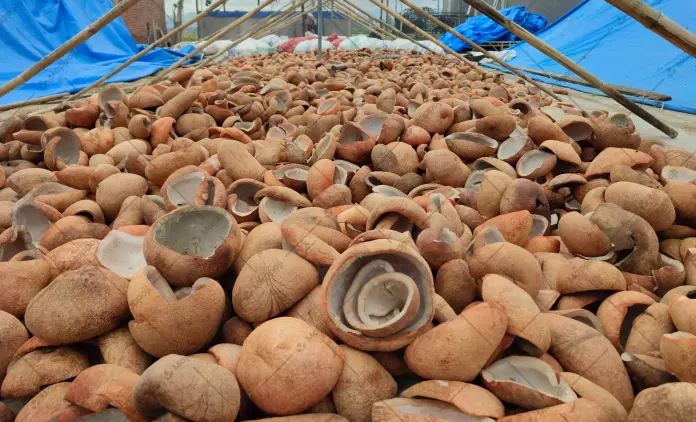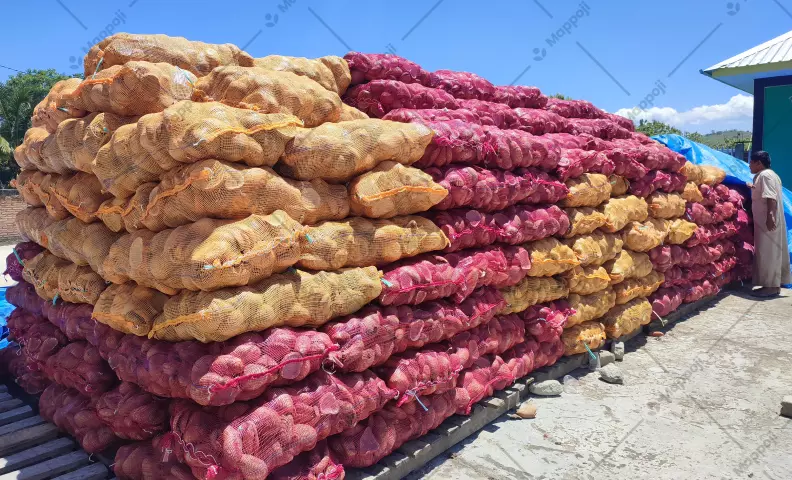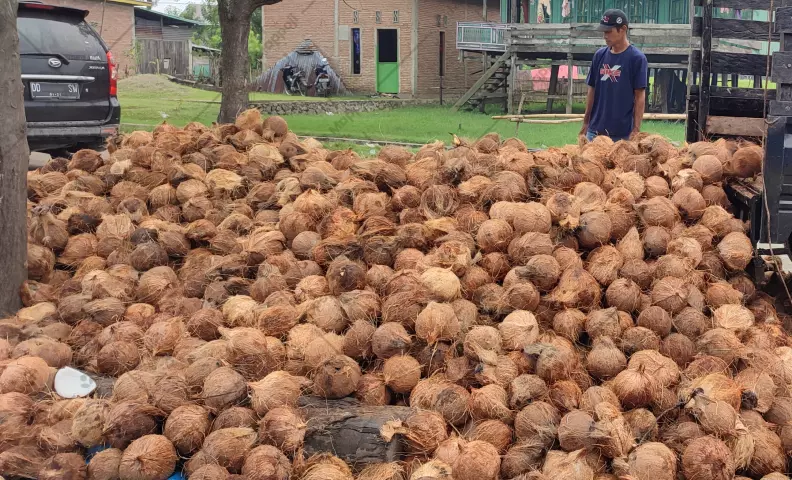Jun 20, 2022 | Product
Why Do Companies Import Copra?

Achmad Alimin

Copra drying process by local farmers. Image Credit: Mappoji
Mappoji - Copra, the dried kernel of coconuts, serves as a crucial ingredient in various
industries such as food processing, cosmetics, and soap manufacturing. Coconut production and copra
processing are concentrated in tropical regions such as Southeast Asia, the Pacific Islands, and the
Caribbean. However, copra import is prevalent in many countries worldwide due to various reasons,
including raw material availability, cost considerations, quality and variety, market demand,
seasonal variations, and trade agreements.
Raw Material Availability
Copra production and coconut cultivation are dependent on factors such as soil quality, rainfall, and
climatic conditions. Some regions might have limited coconut production or insufficient copra supply
due to various reasons, including natural disasters, disease outbreaks, or environmental
degradation. In such cases, companies operating in these regions might choose to import copra to
ensure a consistent supply of raw materials for their production processes. Importing copra from
regions with abundant coconut cultivation and processing can provide companies with access to a
reliable and cost-effective supply of copra.
Cost Considerations
The cost of copra production can vary significantly depending on factors such as labor costs, local
market conditions, and economies of scale. In some cases, importing copra might prove to be more
cost-effective for companies than sourcing it domestically. For example, copra production might be
expensive in countries with high labor costs, while importing copra from countries with lower labor
costs might reduce production costs. Similarly, importing copra from regions with abundant coconut
production and processing might provide economies of scale, resulting in lower copra prices.
Quality and Variety
Copra quality can vary significantly depending on factors such as coconut variety, processing
methods, and climatic conditions. Some regions might be known for their superior quality copra due
to factors such as soil quality, rainfall, and sunshine hours. Similarly, some regions might have
unique copra varieties that align with specific product requirements. In such cases, companies might
choose to import copra from these regions to ensure consistent quality and access to a broader range
of copra varieties.
Market Demand
The global demand for coconut-based products such as coconut oil, coconut milk, and coconut water has
been growing steadily over the past few years. However, some countries might have limited coconut
production, resulting in copra shortages. In such cases, companies operating in these regions might
choose to import copra to meet the growing consumer demand for coconut-based products. Importing
copra from countries with abundant coconut production can provide companies with access to a
reliable and cost-effective supply of copra, enabling them to maintain market competitiveness.
Seasonal Variations
Coconut production is subject to seasonal variations in different regions. For example, some regions
might experience copra shortages during the monsoon season due to rainfall and humidity, while
others might experience shortages during the dry season due to water scarcity. In such cases,
companies might choose to import copra from other regions to bridge the gap and maintain
uninterrupted production throughout the year. Importing copra from regions with different production
cycles can provide companies with a steady supply of copra throughout the year.
Trade Agreements and Comparative Advantage
International trade agreements, preferential trade policies, and comparative advantages in copra
production might incentivize companies to import copra. For example, some countries might have lower
import tariffs for copra, enabling companies to import copra at a lower cost. Similarly, some
countries might have specialized copra varieties that align with specific product requirements,
enabling companies to import copra with unique characteristics. Additionally, some countries might
have a comparative advantage in copra production due to factors such as favorable climatic
conditions or advanced processing technologies, enabling them to produce copra at a lower cost than
other countries.
In conclusion, companies import copra for various reasons, including raw material availability, cost
considerations, quality and variety, market demand, seasonal variations, and trade agreements.
Importing copra allows companies to ensure a consistent supply of raw materials, reduce production
costs, access superior quality and a broader range of copra varieties, meet market demand, bridge
seasonal variations, and leverage trade advantages. Importing copra plays a crucial role in enabling
companies to maintain production continuity, meet consumer demand, and remain competitive in the
global marketplace.
We look forward to hearing from you and to the possibility of working together. Please don't hesitate
to contact us. Our team is always happy to help and can provide you with
the information you need to make an informed decision.




